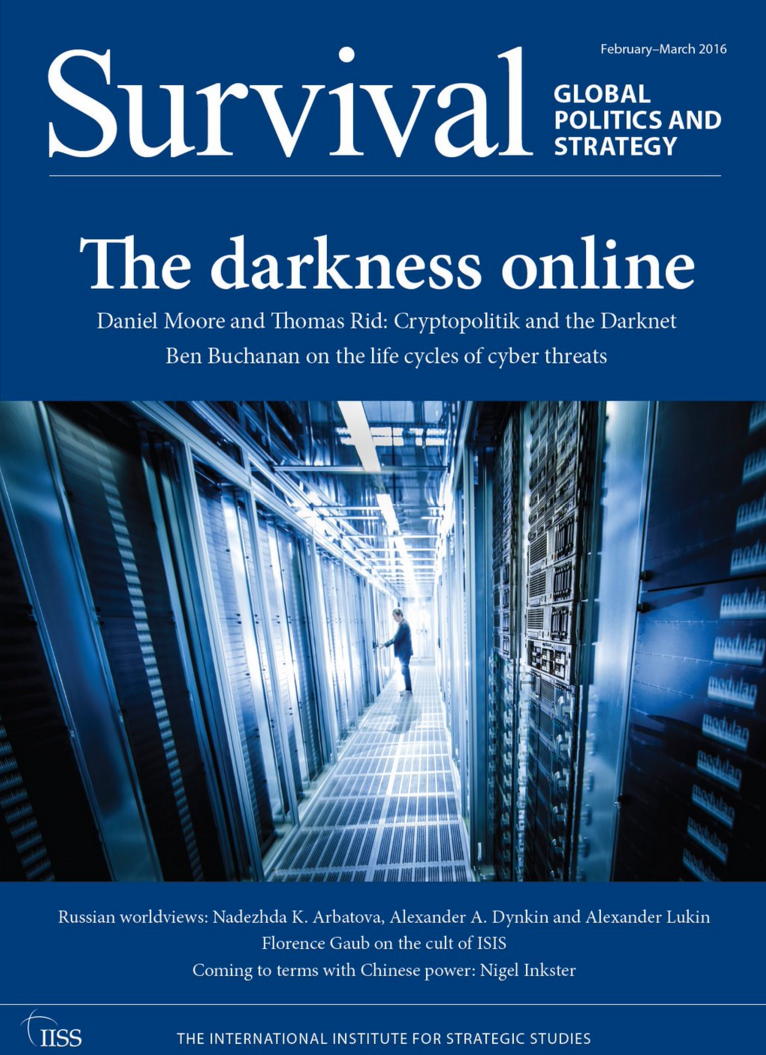“Cryptopolitik and the Darknet,” with Daniel Moore, Survival, 2016, February/March, vol 57, iss 1, 7–38, DOI 10.1080/00396338.2016.1142085
 Encryption policy is becoming a crucial test of the values of liberal democracy in the twenty-first century. The trigger is a dilemma: the power of ciphers protects citizens when they read, bank and shop online — and the power of ciphers protects foreign spies, terrorists and criminals when they pry, plot and steal. Encryption bears directly on today’s two top threats, militant extremism and computer-network breaches — yet it enables prosperity and privacy. Should the state limit and regulate the fast-growing use of cryptography? If so, how?
Encryption policy is becoming a crucial test of the values of liberal democracy in the twenty-first century. The trigger is a dilemma: the power of ciphers protects citizens when they read, bank and shop online — and the power of ciphers protects foreign spies, terrorists and criminals when they pry, plot and steal. Encryption bears directly on today’s two top threats, militant extremism and computer-network breaches — yet it enables prosperity and privacy. Should the state limit and regulate the fast-growing use of cryptography? If so, how?
[…] Crypto systems are not politically neutral; they embody political choices. In some cases, the costs incurred by establishing a specific cryptographically enabled service may outweigh the benefits. We test and establish this argument by critically assessing one of the most sophisticated and controversial encryption platforms today: the Tor Project. If there is a line that demarcates liberal from illiberal cryptographic architectures, it runs right through Tor. To be more precise, it runs right through hidden services.
Technical annex and discussion on Tor Hidden Services (requires Tor Browser) at http://35oktenzdrt2v4o5.onion
On Altmetric
Launched at IISS on 3 February.
Covered in Motherboard, Telegraph, Süddeutsche Zeitung, Tecmundo, Fars, BBC Newsday, Naked Security, Schneier on Security, BBC 5 Live, BBC World Service, Sky News, Die Zeit, Herald Sun, The Telegraph (Australia), Quartz, Nextgov, more